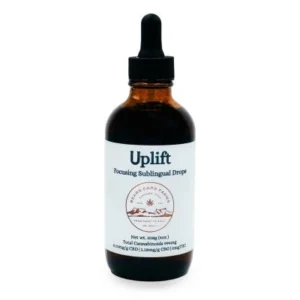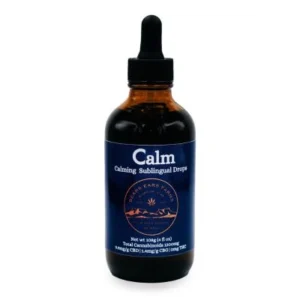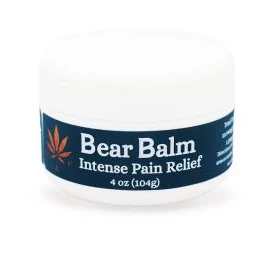Chronic pain is more than just an occasional ache or discomfort. It’s a persistent condition that can affect a person’s entire life, from daily activities to overall happiness. Many people endure constant pain for months or even years, often finding little relief with traditional medications. This ongoing struggle has led many to look for alternative solutions, and CBD is one such promising option that’s gaining attention.
CBD, or cannabidiol, is a natural compound found in hemp plants. Known for its potential to ease pain and inflammation, CBD is becoming a popular choice for those seeking relief from chronic pain conditions without unwanted side effects. People with conditions like arthritis, fibromyalgia, and migraines are turning to CBD to help manage their symptoms and improve their quality of life.
The potential benefits of CBD for chronic pain management lie in its ability to interact with the body’s systems, providing a natural and holistic approach. With various CBD products available, from tinctures to topicals, there’s a way to make CBD part of your journey toward pain relief. Let’s explore how CBD might be the game-changer you need.
Understanding Chronic Pain and CBD’s Role
Chronic pain is a long-lasting discomfort that persists for weeks, months, or even years. Unlike acute pain, which typically signals an injury and subsides after healing, chronic pain lingers and affects a person’s quality of life. It can manifest in various forms, such as constant sharp pains, dull aches, or even burning sensations. People with chronic pain often find it challenging to participate in everyday activities, resulting in fatigue, mood swings, and sometimes depression.
The way CBD helps with chronic pain largely depends on how it interacts with the body. CBD works with the endocannabinoid system (ECS), a key player in regulating many processes, including pain sensation. The ECS comprises receptors throughout the body that, when activated, can produce pain-relieving effects. CBD indirectly influences these receptors, helping modulate the body’s response to pain and inflammation. It can also affect non-cannabinoid receptors, aiding in pain reduction and improving overall comfort.
Many chronic pain sufferers are turning to CBD as a potential alternative to traditional painkillers, which often come with undesirable side effects. While more research is still needed to fully understand CBD’s effectiveness, early findings suggest that it could offer a viable solution for managing chronic pain naturally and effectively.
Common Chronic Pain Conditions Helped by CBD
Many chronic pain conditions may benefit from CBD’s potential therapeutic effects. Here’s a look at some conditions where CBD might help manage pain:
1. Arthritis: This condition causes inflammation and pain in the joints. CBD’s anti-inflammatory properties can help reduce swelling and alleviate joint pain.
2. Fibromyalgia: Known for widespread pain, fibromyalgia sufferers often experience fatigue, sleep problems, and mood issues. CBD may help manage pain levels and improve sleep quality, leading to better overall well-being.
3. Migraines: These severe headaches can be debilitating and are often accompanied by nausea and sensitivity to light. CBD may help reduce the frequency and intensity of migraine episodes.
4. Back Pain: Persistent back pain is a common issue many people face. CBD’s potential to relieve pain and relax muscles might make it a suitable remedy.
These conditions represent just a few of the chronic pain types where CBD could offer relief. Each condition requires different management strategies, but incorporating CBD might provide natural support in reducing pain and improving life quality. Always remember to consult with healthcare professionals to ensure CBD is a good fit for your specific needs and conditions.
Choosing the Right CBD Products for Pain Management
Selecting the right CBD product can make a significant difference in managing chronic pain effectively. Various forms of CBD cater to different needs and preferences, so understanding these options is crucial.
1. Tinctures: Tinctures are liquid extracts that can be taken sublingually, under the tongue, for quick absorption into the bloodstream. They are an excellent choice for those seeking fast relief from pain.
2. Creams and Topicals: These products are applied directly to the skin on the affected area. They are ideal for localized pain relief, such as joint or muscle pain related to arthritis. Topicals offer targeted relief without entering the bloodstream.
3. Capsules: CBD capsules provide a tasteless way to consume CBD. They deliver a consistent dose with each use, making it easier to manage daily intake. Capsules are suitable for individuals who prefer a simple and precise dosing method.
4. Gummies: These are fun and easy to consume. While their effects might take longer to kick in due to digestion, they provide a consistent dosage and are a great option for beginners.
Paying attention to dosage is essential for effectiveness. Start with a low dose, gradually increasing until you find the amount that provides relief without side effects. It’s also wise to consult with a healthcare professional to tailor the dosage to your specific needs and ensure safe usage alongside any other medications.
Safety Tips and Precautions
While CBD is generally considered safe, it’s important to approach its use with consideration, especially for chronic pain management.
1. Start Slow: It’s advisable to begin with a small dose to assess how your body responds to CBD. Each individual may experience different effects, so starting slow helps gauge tolerance.
2. Check for Interactions: CBD can interact with other medications, such as blood thinners. Before adding CBD to your regimen, consult your healthcare provider, particularly if you’re taking other prescriptions.
3. Choose Quality Products: Look for CBD products that come with third-party lab testing to ensure purity and potency. This ensures you’re getting a high-quality product free from contamination.
4. Know Side Effects: Although rare, some may experience mild side effects like fatigue or changes in appetite. Monitor your body’s response and adjust usage as needed.
Engaging in an open dialogue with your healthcare provider helps ensure that you’re taking CBD safely. They can provide guidance based on your current health conditions and advise on the best practices tailored to your needs.
Conclusion
CBD’s potential to ease chronic pain offers hope to many, providing a natural alternative to some traditional pain relief methods. By understanding the different CBD products available and choosing the ones that best suit your needs, you can tailor your approach to manage your pain more effectively. Safety is paramount, and working with healthcare professionals ensures that you are using CBD safely while pursuing a better quality of life.
Explore the benefits of CBD for chronic pain relief with Bears Ears Farms’ natural products. Crafted with care, our selection ensures purity and effectiveness, providing you with the confidence needed to incorporate CBD into your wellness journey. Shop now to discover how our organic CBD products can help you manage pain more naturally and enjoy a fuller, livelier life.




